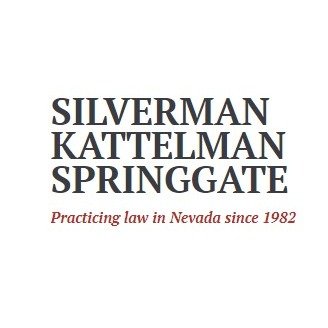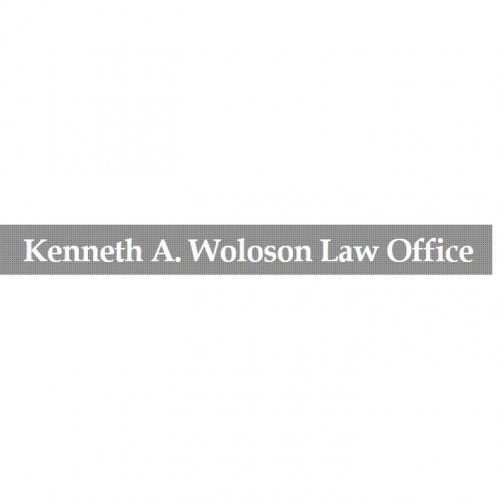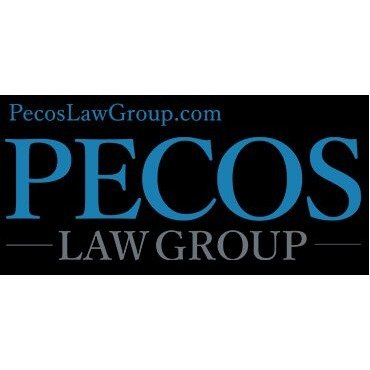Best Antitrust Litigation Lawyers in Nevada
Share your needs with us, get contacted by law firms.
Free. Takes 2 min.
Or refine your search by selecting a city:
List of the best lawyers in Nevada, United States
About Antitrust Litigation Law in Nevada, United States
Antitrust litigation involves legal disputes arising from alleged violations of laws designed to promote fair competition and prevent monopolistic practices in the marketplace. In Nevada, as in the rest of the United States, antitrust laws are enforced to ensure businesses compete fairly, to protect consumers from price-fixing, market allocation, monopolies, and other anti-competitive behaviors. Both federal and state regulations apply, creating a complex legal landscape for businesses and individuals alike.
Why You May Need a Lawyer
Antitrust litigation can be highly complex and challenging due to overlapping state and federal laws, intricate economic analyses, and the potentially high stakes involved. Common situations where you may require legal help include:
- Experiencing unfair competition or exclusionary practices by a competitor
- Being accused of participating in price-fixing, bid-rigging, or market allocation
- Noticing suspicious mergers or acquisitions that may reduce market competition
- Operating a business concerned about compliance with antitrust regulations
- Following up on whistleblower actions involving antitrust violations
- Being part of a class action concerning deceptive or anti-competitive business conduct
- Responding to government investigations or subpoenas related to antitrust matters
- Seeking damages after being harmed by anti-competitive behavior
Because antitrust cases can result in substantial financial penalties, damages, and even criminal charges in severe instances, experienced legal guidance is crucial.
Local Laws Overview
Nevada enforces both federal antitrust laws, such as the Sherman Act and Clayton Act, and its own state statutes under the Nevada Unfair Trade Practice Act. Key aspects of antitrust law in Nevada include:
- Prohibited Practices: Nevada law forbids conspiracies to fix prices, rig bids, or divide markets. Attempts to create or maintain monopolies are also illegal.
- Remedies: Individuals or businesses harmed by antitrust violations can file lawsuits for damages, seek injunctive relief to stop illegal conduct, and may be awarded triple damages in certain situations.
- Enforcement: The Office of the Nevada Attorney General can investigate and prosecute antitrust violations. Federal agencies such as the Federal Trade Commission and U.S. Department of Justice also have jurisdiction in Nevada.
- Mergers and Acquisitions: Large business combinations may be subject to review if they threaten to reduce competition within Nevada markets.
- Private Actions: Individuals and businesses can bring private antitrust lawsuits in Nevada courts for conduct that negatively impacts them.
Frequently Asked Questions
What is antitrust litigation?
Antitrust litigation refers to legal actions taken against individuals or companies accused of engaging in anti-competitive practices, such as price-fixing, monopolization, or unlawful mergers, that restrict fair trade and harm consumers or competitors.
How do federal and Nevada state antitrust laws interact?
Both levels of law may apply. Often, conduct that violates federal law also breaches Nevada's state statutes. Plaintiffs may bring claims under both systems, and government agencies may coordinate enforcement.
Who can file an antitrust lawsuit in Nevada?
Both individuals and businesses harmed by anti-competitive practices can initiate lawsuits. The Nevada Attorney General or federal authorities may also bring actions on behalf of the public.
What are common examples of antitrust violations?
Examples include price-fixing conspiracies, bid-rigging in public contracts, market allocation agreements, tying arrangements, monopolization, and certain types of exclusive dealing or merger agreements.
What penalties or remedies exist for antitrust violations?
Penalties may include injunctions to stop illegal conduct, monetary damages (which may be tripled in some cases), attorney fees, and possible criminal charges for intentional violations. Courts can also order divestitures of assets in some instances.
How long do I have to file an antitrust lawsuit in Nevada?
The statute of limitations may vary, but typically plaintiffs must file within four years of the alleged violation or when its effects became apparent. Specific timelines may depend on circumstances, so timely legal advice is important.
How is antitrust law enforced in Nevada?
Enforcement may be carried out by the Nevada Attorney General, federal agencies such as the Department of Justice and FTC, and through private lawsuits brought by affected individuals or companies.
Can small businesses be sued for antitrust violations?
Yes, antitrust laws apply to businesses of all sizes. Small businesses can be liable if they engage in illegal anti-competitive agreements or activities.
Do antitrust laws apply only to large corporations?
No, antitrust laws apply broadly to all companies conducting commerce, regardless of size. Both small and large businesses can be held accountable for violations.
What should I do if I think I am a victim of anti-competitive behavior?
You should gather all relevant documents and contacts related to the practice, avoid engaging in any discussions or agreements that could worsen the situation, and consult an attorney experienced in antitrust litigation to explore your options.
Additional Resources
If you are seeking more information or assistance on antitrust issues in Nevada, the following resources may be helpful:
- Nevada Attorney General's Office: Investigates and enforces state antitrust laws.
- Federal Trade Commission (FTC): Provides guidance and consumer information on antitrust matters.
- U.S. Department of Justice Antitrust Division: Enforces federal antitrust laws nationwide, including Nevada.
- Nevada State Bar Association: Helps connect individuals with qualified antitrust attorneys in the state.
- Legal aid organizations: Provide guidance or representation for those with limited resources.
Next Steps
If you believe you have experienced or have been accused of an antitrust violation in Nevada, consider taking these steps:
- Document any suspected anti-competitive activity, including correspondence, contracts, and financial records.
- Avoid discussing the issue with those who may be implicated until you receive legal advice.
- Contact a qualified Nevada attorney who specializes in antitrust litigation. The State Bar of Nevada offers directories of experienced lawyers.
- Consider reporting suspected violations to the Nevada Attorney General or relevant federal agencies, especially if you believe the public interest is at risk.
- Follow the guidance of your attorney regarding next steps, potential litigation, settlement, or cooperation with investigations.
Antitrust litigation requires specialized knowledge and timely action. Seeking professional legal advice is the best way to protect your interests and navigate the complex legal processes involved in Nevada.
Lawzana helps you find the best lawyers and law firms in Nevada through a curated and pre-screened list of qualified legal professionals. Our platform offers rankings and detailed profiles of attorneys and law firms, allowing you to compare based on practice areas, including Antitrust Litigation, experience, and client feedback.
Each profile includes a description of the firm's areas of practice, client reviews, team members and partners, year of establishment, spoken languages, office locations, contact information, social media presence, and any published articles or resources. Most firms on our platform speak English and are experienced in both local and international legal matters.
Get a quote from top-rated law firms in Nevada, United States — quickly, securely, and without unnecessary hassle.
Disclaimer:
The information provided on this page is for general informational purposes only and does not constitute legal advice. While we strive to ensure the accuracy and relevance of the content, legal information may change over time, and interpretations of the law can vary. You should always consult with a qualified legal professional for advice specific to your situation.
We disclaim all liability for actions taken or not taken based on the content of this page. If you believe any information is incorrect or outdated, please contact us, and we will review and update it where appropriate.
Browse antitrust litigation law firms by city in Nevada
Refine your search by selecting a city.













